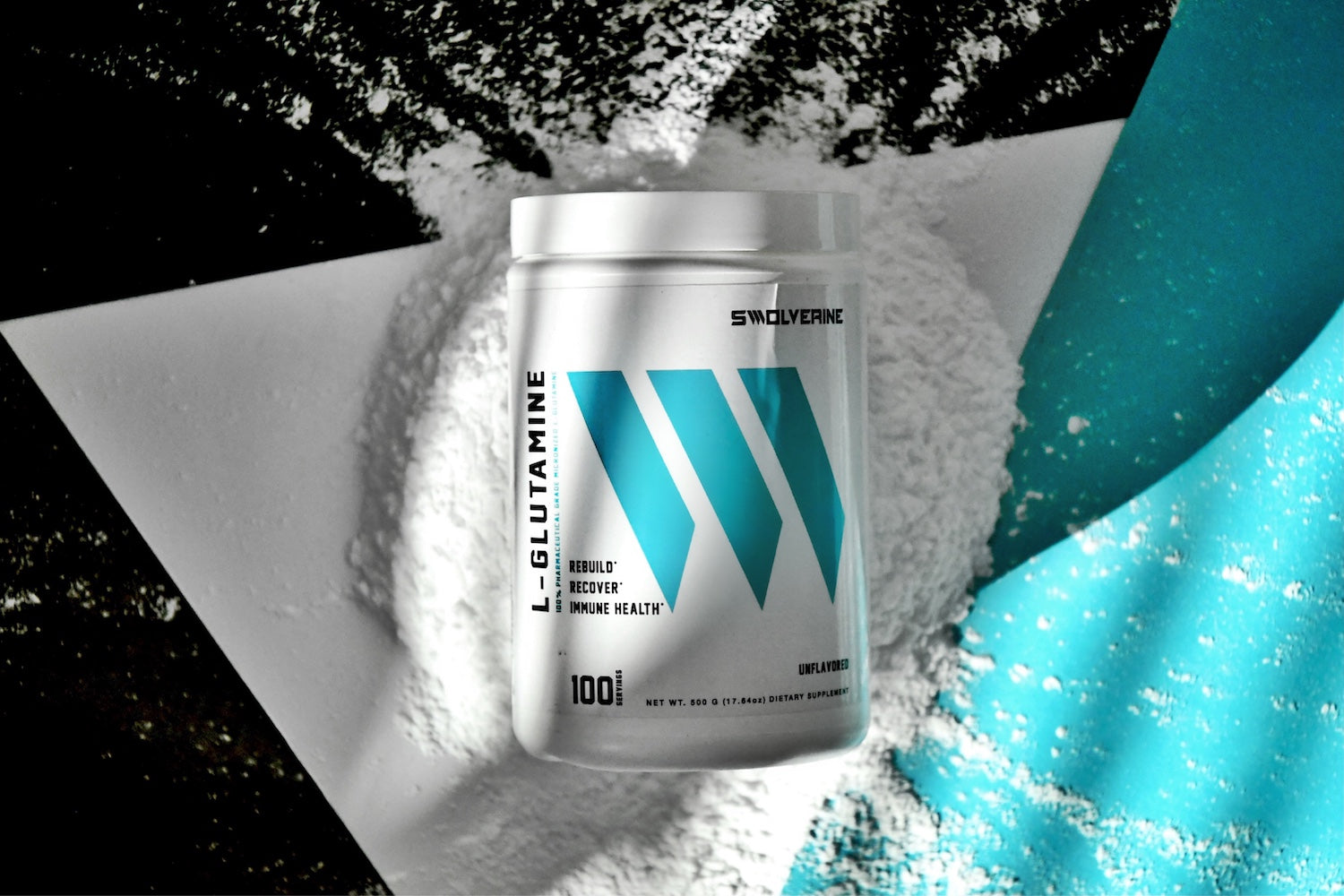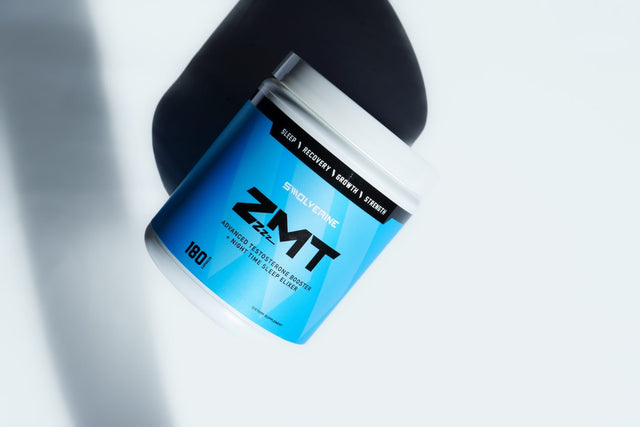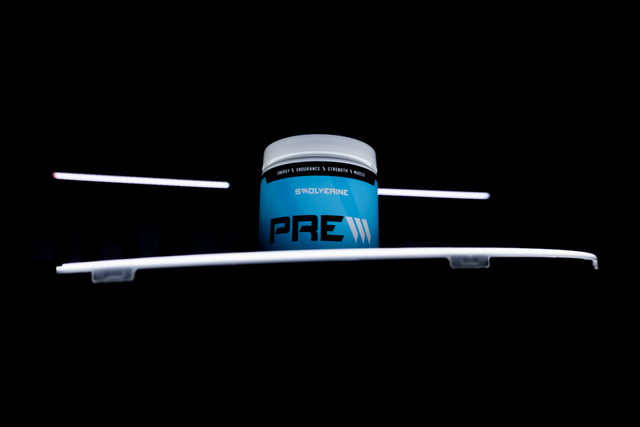In today’s fast-paced world, gut health is often overlooked, yet it plays a pivotal role in our overall well-being. If you've ever experienced bloating, discomfort, or irregular digestion, it’s time to explore a powerful ally — L-Glutamine. This amino acid is emerging as a front-runner in digestive wellness, known for its ability to support the intestinal lining and promote a balanced microbiome. But what makes L-Glutamine so essential?
Not only does it help repair and maintain gut integrity, but it also plays a crucial role in enhancing nutrient absorption and reducing inflammation. As we unlock the secrets of gut health, understanding the benefits of L-Glutamine can pave the way to a healthier, happier you.
Dive into this article to discover how incorporating L-Glutamine into your routine can transform your gut and digestive health and improve your quality of life. Your journey to optimal gut health starts here!
Unlocking Gut Health: The Power of L-Glutamine for Digestive Wellness
Understanding Gut Health: An Overview
Gut health is increasingly recognized as a cornerstone of overall wellness. The gut, or gastrointestinal tract, not only processes the food we eat but also plays a vital role in the immune system, mental health, and general vitality.
The human gut is home to trillions of microorganisms—including bacteria, viruses, and fungi—collectively known as the gut microbiome. This complex ecosystem supports digestion, nutrient absorption, and the production of vitamins. A balanced microbiome helps maintain the integrity of the intestinal lining, preventing harmful pathogens from entering the bloodstream Bäckhed et al., Science, 2005.
Disrupted gut health can lead to:
-
Bloating, gas, and discomfort
-
Constipation or diarrhea
-
Inflammatory conditions like IBD and IBS
-
Systemic inflammation
-
Autoimmune disorders
-
Mental health issues like anxiety and depression Cryan et al., Nature Reviews Neuroscience, 2012
Strategies for improving gut health include probiotics, prebiotics, and nutritional interventions. Among the most promising is L-Glutamine, a conditionally essential amino acid that plays a pivotal role in maintaining gut lining integrity, reducing inflammation, and promoting digestive health.
What is L-Glutamine?
L-Glutamine is the most abundant free amino acid in human blood and muscle tissue. It is classified as a conditionally essential amino acid, meaning that under certain conditions—such as illness, trauma, or intense exercise—the body’s demand exceeds its ability to produce it naturally Newsholme et al., Journal of Nutrition, 1994.
Functions of L-Glutamine include:
-
Protein synthesis
-
Immune system support
-
Gut lining maintenance
-
Energy supply for enterocytes (intestinal cells)
-
Nitrogen transport and nucleotide production
L-Glutamine also aids in gluconeogenesis (the production of glucose from non-carbohydrate sources), which is crucial for energy balance and recovery during metabolic stress.
The Role of L-Glutamine in Digestive Health
The digestive system is a marvel of biological engineering, and L-Glutamine plays a central role in its performance.
Fuel for Enterocytes
The enterocytes, or epithelial cells lining the intestines, rely heavily on L-Glutamine for energy. These cells are responsible for absorbing nutrients and maintaining the integrity of the gut barrier. Without adequate L-Glutamine, their function declines, potentially compromising intestinal health Rhoads & Wu, Journal of Nutrition, 1997.
Barrier Maintenance and Leaky Gut Prevention
A healthy intestinal lining acts as a selective barrier, allowing nutrients to pass while blocking pathogens and toxins. When this barrier becomes permeable—a condition known as leaky gut—harmful substances can enter the bloodstream, triggering systemic inflammation and health complications.
L-Glutamine helps repair and reinforce this barrier by:
-
Enhancing the growth and repair of enterocytes
-
Regulating tight junction proteins
-
Supporting the production of protective mucin Zuhl et al., Journal of the International Society of Sports Nutrition, 2014
Support for the Gut Microbiome
L-Glutamine also plays a role in shaping the gut microbiome. It has been shown to:
-
Promote the growth of beneficial bacteria (e.g., Lactobacillus, Bifidobacterium)
-
Inhibit opportunistic pathogens
-
Support microbiota diversity and resilience Ren et al., Nutrients, 2019
This dual action—strengthening the physical barrier and supporting microbial balance—makes L-Glutamine an essential nutrient for long-term digestive health and immune function.
Benefits of L-Glutamine for Gut Wellness
The benefits of L-Glutamine for digestive wellness are extensive and backed by scientific research.
One of the most significant advantages is its role in repairing and maintaining the intestinal lining. This is especially beneficial for individuals dealing with:
-
Leaky gut syndrome
-
IBD (Crohn’s disease, ulcerative colitis)
-
IBS
By reinforcing the gut lining, L-Glutamine helps reduce inflammation and prevent harmful toxins and pathogens from entering the bloodstream Zuhl et al., Journal of the International Society of Sports Nutrition, 2014.
It also provides anti-inflammatory benefits by:
-
Regulating immune responses
-
Promoting anti-inflammatory cytokines
-
Reducing pro-inflammatory markers like IL-6 and TNF-α
These actions can help relieve symptoms like bloating, gas, and abdominal discomfort in those with chronic inflammatory gut conditions Roth et al., Annals of Surgery, 1996.
L-Glutamine also supports nutrient absorption. A healthy intestinal lining is essential for absorbing vitamins, minerals, and macronutrients from food. Improved absorption means better:
-
Energy levels
-
Immune function
-
Overall vitality
How L-Glutamine Supports Intestinal Barrier Function
The intestinal barrier is a single layer of tightly joined epithelial cells that selectively allows nutrients to pass through while keeping pathogens and toxins out.
L-Glutamine supports this barrier in several ways:
1. Fuel for Enterocytes
Enterocytes—intestinal lining cells—have high energy demands and turnover rates. L-Glutamine is their primary fuel source, essential for their regeneration and function Wang et al., Nutrients, 2015.
2. Promotes Mucin Production
Mucin is a glycoprotein that forms a protective mucus layer on the intestinal lining. L-Glutamine supports mucin synthesis, which helps shield the gut lining from bacterial invasion Faure et al., Clinical Nutrition, 2006.
3. Modulates Tight Junction Proteins
Tight junction proteins regulate permeability between intestinal cells. L-Glutamine has been shown to upregulate tight junction expression, strengthening the intestinal wall and preventing unwanted permeability (i.e., leaky gut) Wu et al., American Journal of Clinical Nutrition, 2011.
Sources of L-Glutamine: Dietary and Supplement Options
L-Glutamine is naturally found in many protein-rich foods. Top dietary sources include:
-
Animal proteins: Beef, pork, chicken, turkey, fish
-
Dairy: Yogurt, milk, cheese
-
Plant-based: Spinach, cabbage, lentils, beans, beets
For those with higher needs or dietary limitations, L-Glutamine supplements are widely available in:
-
Powder
-
Capsule
-
Tablet
These are typically derived from microbial fermentation and offer a pure, concentrated form of L-Glutamine. Supplementation can be especially helpful for:
-
Athletes with high training demands
-
Individuals with digestive conditions
-
People recovering from surgery or illness
When choosing a supplement, look for third-party tested, pharmaceutical-grade products. As always, consult a healthcare provider before starting supplementation.
Recommended Dosages and Usage Guidelines
Determining the appropriate dosage of L-Glutamine depends on individual health status and goals. For general gut health, a common daily dosage ranges from 5 to 10 grams, typically split into 2–3 servings. Taking L-Glutamine on an empty stomach may enhance absorption Wernerman et al., Clinical Nutrition, 2008.
For individuals managing leaky gut, IBD, or IBS, higher dosages between 10–20 grams per day may be appropriate. However, it's essential to work with a healthcare provider to determine safe and effective dosing tailored to your specific needs.
Key usage tips include:
-
Consistency: Daily use is vital for sustained benefits
-
Hydration: Drink plenty of water to support cellular function
-
Diet pairing: Combine with a diet rich in fiber, probiotics, and micronutrients for enhanced results
For athletes and active individuals, taking L-Glutamine pre- or post-workout may help reduce muscle soreness, inflammation, and promote recovery Antonio et al., Nutrition, 2002. Consulting with a sports nutritionist can help align timing and dosage with performance goals.
Potential Side Effects and Considerations
L-Glutamine is generally well-tolerated, but some individuals may experience mild side effects, especially at higher doses. These can include:
-
Bloating
-
Gas
-
Nausea or upset stomach
These symptoms typically resolve with dose adjustment or changing timing of intake.
Use with caution if you have:
-
Kidney or liver disease – Excess amino acids can stress these organs
-
Seizure disorders or neurological conditions – High doses may affect neurotransmitter balance Neu et al., Metabolic Brain Disease, 1996
Pregnant or breastfeeding women should consult a healthcare provider before use. While L-Glutamine from whole foods is safe, high-dose supplementation during pregnancy or lactation lacks sufficient research for safety assurances.
Integrating L-Glutamine into Your Wellness Routine
Integrating L-Glutamine into your daily routine can be simple and impactful:
Step 1: Assess dietary intake
-
Add L-Glutamine-rich foods like chicken, fish, dairy, lentils, and cabbage
-
Pair these with gut-healthy foods like fermented vegetables, whole grains, and healthy fats
Step 2: Create a supplement routine
-
Take L-Glutamine in the morning, between meals, or around workouts
-
Track symptoms or digestive improvements weekly
-
Stay hydrated and consistent for best results
Step 3: Support your gut with lifestyle practices
-
Stress management: Use mindfulness, deep breathing, or yoga
-
Movement: Regular exercise helps stimulate digestion and nutrient uptake
-
Sleep hygiene: Prioritize restorative sleep to reduce inflammation and support repair
By combining L-Glutamine supplementation with a holistic, gut-conscious lifestyle, you can significantly improve digestive wellness and enhance your overall health.
Looking for a high-quality L-Glutamine supplement to support your gut health, recovery, and performance goals? Swolverine’s L-Glutamine delivers a pure, pharmaceutical-grade formula with 5g of micronized L-Glutamine per serving—designed to promote digestive repair, enhance immune function, and reduce muscle soreness.
Whether you’re navigating gut issues like leaky gut or IBD, or just want to support recovery and nutrient absorption, Swolverine’s L-Glutamine is a clean, effective way to meet your daily needs. Plus, it's unflavored and easy to mix—perfect for your morning stack or post-workout shake.
💥 Shop Swolverine L-Glutamine now and take the next step toward better gut health and performance
Conclusion: The Future of Gut Health with L-Glutamine
As our understanding of gut health continues to evolve, L-Glutamine stands out as a powerful ally in the quest for digestive wellness. Its ability to repair and maintain the intestinal lining, reduce inflammation, and enhance nutrient absorption makes it an invaluable tool for supporting overall gut health. Whether through dietary sources or supplements, ensuring adequate intake of L-Glutamine can pave the way to a healthier, happier you.
The future of gut health research holds exciting possibilities, with L-Glutamine likely to play a central role. As scientists continue to uncover the intricate connections between the gut, immune system, and brain, the importance of maintaining a healthy gut becomes ever more apparent. By incorporating L-Glutamine into your wellness routine, you can take proactive steps to support your digestive health and overall well-being.
Your journey to optimal gut health starts here. Embrace the power of L-Glutamine, make mindful choices, and prioritize your digestive wellness. With the right knowledge and tools, you can unlock the secrets of gut health and enjoy a vibrant, thriving life. Here’s to a future of digestive wellness and a healthier, happier you!
Find similar articles:
Supplements












